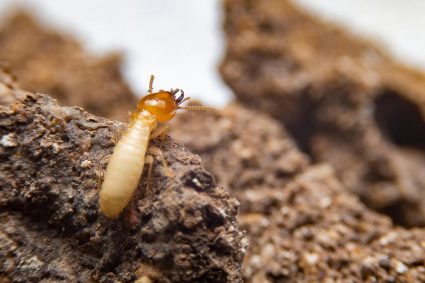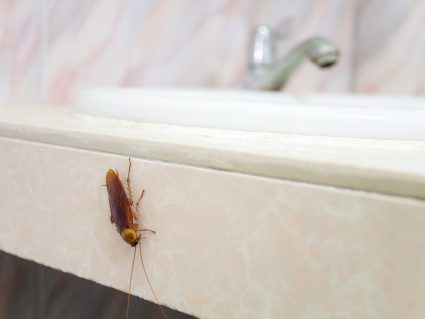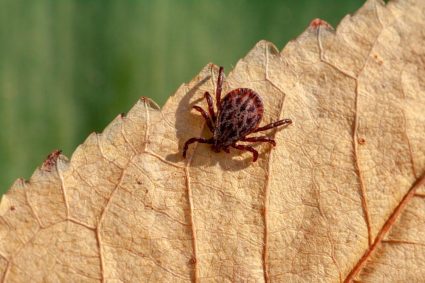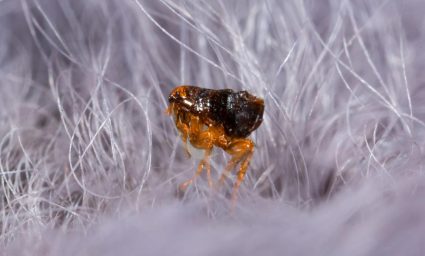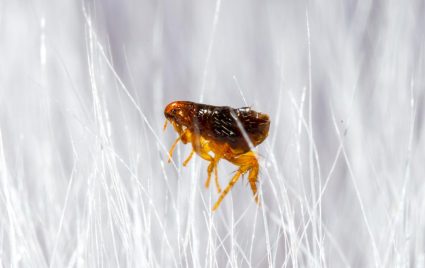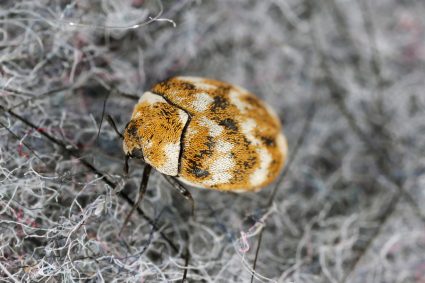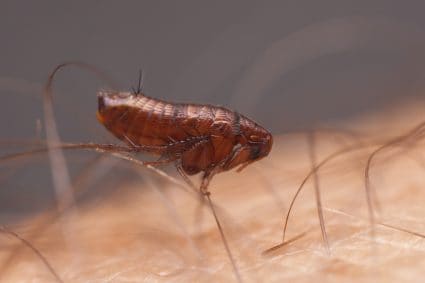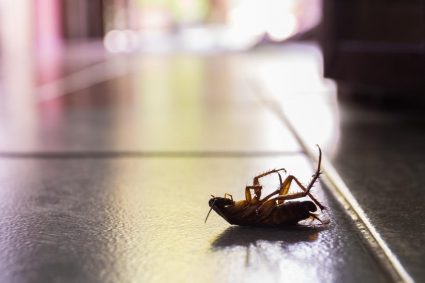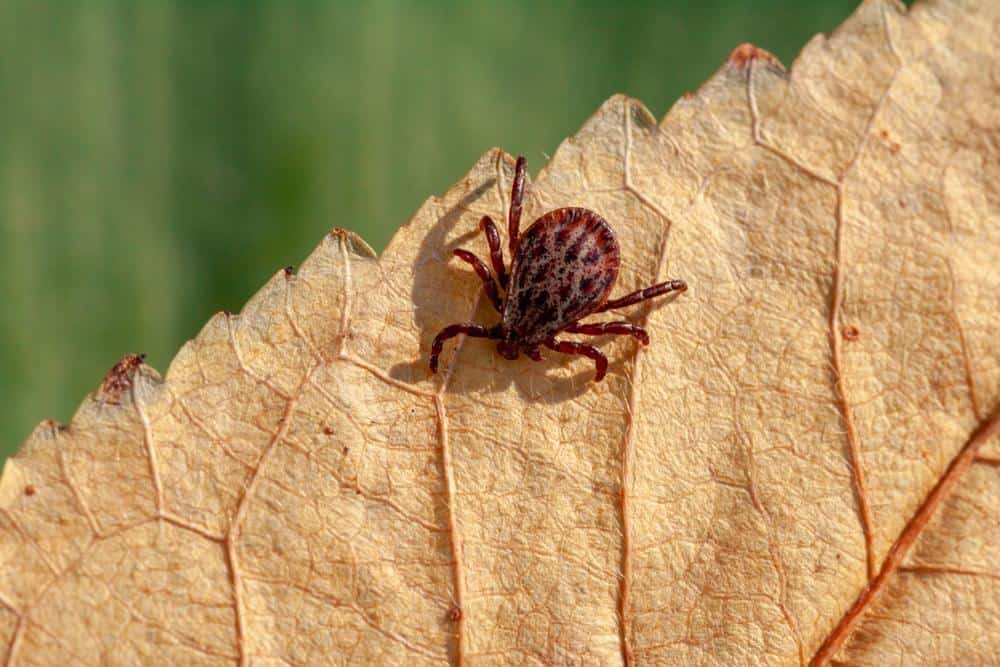
Chiggers, also known as berry bugs, bush-mites, red bugs, or scrub-itch mites, are a family of mites belonging to the Trombiculidae family. They are often confused with jiggers, a type of flea. Chiggers are most commonly found in damp areas with low-growing shrubs, tall grass, weeds, and similar foliage. Their bites cause intense itching and small reddish welts on the skin. But do frosty conditions kill these pesky pests? Let’s find out.
Yes, frost can kill chiggers. Chiggers are most active when the ground temperature is between 77 and 86 degrees Fahrenheit. They become inactive with temperatures over 90 F or below 60 F. Ground temperatures colder than 42 degrees Fahrenheit are lethal to chiggers. Therefore, when the first killing frost occurs, the threat of chigger attacks significantly decreases.
The Impact of Frost on Chiggers
Frost can indeed kill chiggers. Chiggers are most active when the ground temperature is between 77 and 86 degrees Fahrenheit. They become inactive with temperatures over 90 F or below 60 F. So, when the first killing frost occurs, the threat of chigger attacks significantly decreases. Ground temperatures colder than 42 degrees Fahrenheit are lethal to chiggers.
Chiggers’ Survival in Different Weather Conditions
Chiggers are a species of mite that thrive in warm temperatures, especially during the summer months. They are most active when the ground temperature is between 77°F and 86°F. Chiggers can survive and remain active at temperatures as low as 45°F. They are sensitive to light and tend to avoid the sun, as it dries out their bodies.
During the winter, adult chiggers spend their time in the soil or other protected places. They become active in the spring when soil temperatures reach around 60°F, with females laying up to 15 eggs per day in vegetation.
Protecting Yourself from Chiggers
Even during cold weather months, it is possible to encounter chiggers. Here are some steps to protect yourself:
- Wear proper clothing: Opt for long pants, long-sleeve shirts, thick socks, and high boots to minimize exposed skin. Tuck your pants into your socks for added protection.
- Apply insect repellents: Use skin-based repellents containing DEET, picaridin, IR-3535, or oil of lemon eucalyptus to deter chiggers. You can also treat your clothing with permethrin, which is an effective insecticide against chiggers.
- Avoid chigger habitats: Chiggers are typically found in grassy, wooded, and moist areas. Avoid walking through tall grass or spending time in overgrown areas where chiggers may be present.
- Keep your lawn well-maintained: Regularly mow your lawn and trim vegetation to raise soil temperatures and lower humidity, making the area less hospitable to chiggers.
- Check the temperature: Chiggers do not bite at temperatures cooler than about 60°F (15.5°C). If the temperature is below this threshold, you are less likely to encounter chiggers.
Common Misconceptions about Chiggers and Frost
Chiggers are often misunderstood, and there are several misconceptions about them. For example, some people believe that chiggers burrow into your skin when, in fact, they remain on the surface. Similarly, many believe that frost is frozen dew, while, in reality, frost forms when the air temperature is less than 32 degrees, depending on specific conditions.
Treating Chigger Bites
If you do get bitten by chiggers, some common treatments include bathing or showering with hot water and soap to remove any remaining chiggers from your skin, applying over-the-counter (OTC) anti-itch creams or ointments, like hydrocortisone or calamine lotion, taking oral antihistamines, like diphenhydramine (Benadryl), and avoiding scratching the bites, as this can lead to infection and prolong the healing process.
Conclusion
In conclusion, frost can indeed kill chiggers. However, it’s essential to take preventive measures to avoid chigger bites and treat them if they occur. With the right knowledge and precautions, you can protect yourself from these pesky pests.
Frequently Asked Questions
What are the symptoms of a chigger bite?
A chigger bite often results in intense itching, and you may notice reddish welts on your skin. Other symptoms may include hives or blisters at the bite site, and the itching can last for several days.
How long does it take for a chigger bite to heal?
A chigger bite typically takes 1 to 3 weeks to heal. It’s important to avoid scratching the bite as this can lead to infection and prolong the healing process.
Can chiggers infest your home?
No, chiggers do not infest homes. They are outdoor pests and prefer to live in damp areas with vegetation. However, they can hitch a ride on your clothing or pets and enter your home, but they won’t survive long in a dry indoor environment.
Can chiggers transmit diseases?
In the United States, chiggers do not carry diseases. However, in some parts of the world, certain species of chiggers can transmit a disease called scrub typhus.
How can I get rid of chiggers in my yard?
To get rid of chiggers in your yard, keep your lawn mowed regularly and vegetation trimmed. Insecticides can also be used to control chiggers, but they should be used as a last resort and applied by a professional pest control service.

